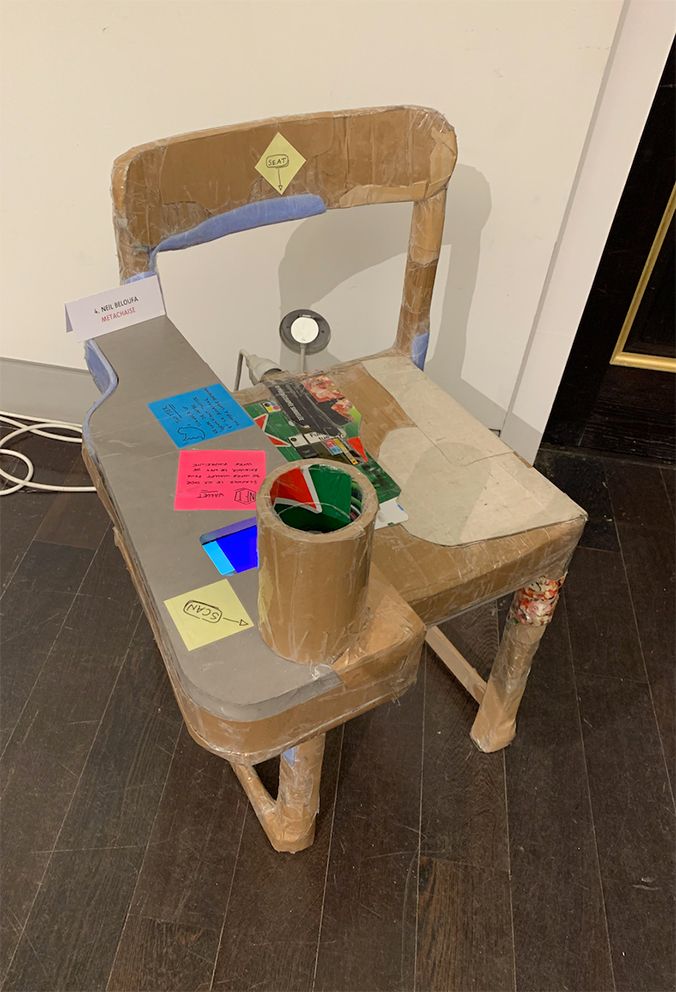Description
Neil Beloufa
Metachaise In a world that wants to metatize everything, the Metachaise, also known as the blockchaise, is a strangely connected object. Even if it doesn't allow anything more than a chair, it registers on the blockchain each posterior that we put on it, publishes it immediately on its social networks hoping to create, as others do, data from behind. By Ebb & Neil Beloufa 78 x 48 x 44 cm
You may also like
